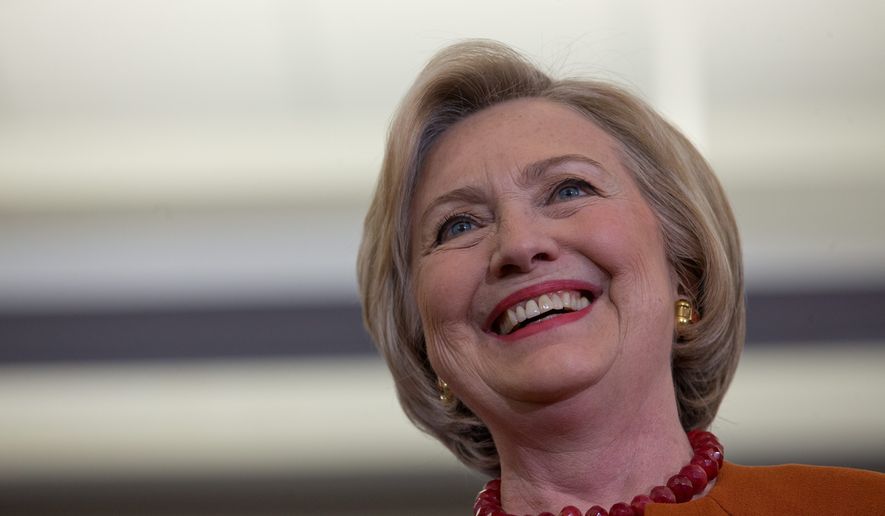OPINION:
The presidential primaries continue, with a crucial decision coming Tuesday in Wisconsin. Donald Trump and Hillary Clinton are far ahead of the diminished fields, but nothing is ever certain in politics. The conventional wisdom says the nominees for November will be Mr. Trump and Mrs. Clinton, but neither is an iron-clad, brass-bottomed lock. Not yet.
Nevertheless, some establishment Republicans have already descended into a pre-election pout, vowing either to leave the country if the Donald prevails, or, more likely (since nobody has booked a flight yet to Sweden, Mogadishu or Lower Slobbovia), cast a ballot for Hillary. Threats to do the wrong thing, since the right thing seems unavailable, offers a little psychic consolation in April but it won’t in November.
Two words tell the reason why: “Supreme Court.” The importance of replacing the late Antonin Scalia, who faithfully stood up for the Constitution as it was written, adopted and honored for centuries, was driven home last week when an evenly divided Court let stand a decision by the Ninth U.S. Circuit Court of Appeals that Rebecca Friedrichs, a California school teacher, could be required to pay dues to a union that she is not a member of and does not want to join.
Ms. Friedrichs had asked the high court to overturn the lower court’s decision affirming the “agency fee” imposed on employees to pay the cost of negotiating a union contract and administering grievance procedures when a union is designated as the sole bargaining agent in the workplace. In California, as in many states, a teachers union is recognized as that sole agent for collective bargaining. This is money in the bank for the union, to spend as the union bosses please, but rights thrown to the wind for employees who prefer to speak for themselves.
A favorable decision for Ms. Friedrichs, which many expected before Justice Antonin Scalia died unexpectedly, would have ended the use of collective bargaining by public employee unions to bring all employees to heel, and at the mercy of the union.
This is a constitutional issue so important that Sen. Mitch McConnell, the leader of the Republican majority in the U.S. Senate, has said there will be no consideration of President Obama’s nominee to replace Justice Scalia until after the November election. By delaying consideration, the voters will decide which new president breaks the deadlock on the court. Mr. McConnell has given Judge Merrick Garland, the president’s nominee, the courtesy of a telephone call, but promises not to schedule a vote on confirmation.
The election this year will largely determine whether the court, and thus the country, remains slightly to the right of center or turns sharply left. The issue goes deeper than the Supreme Court. Many of the justices on the lower appeals courts are moving toward retirement, or creating vacancies by taking senior status. The new president will protect the center-right consensus, appointing judges who will uphold the Constitution as it was written, or turn the High Court toward the left, with replacement justices who can “grow” past the actual Constitution and look to vague “emanations and penumbras” for rights not in the Constitution but which certain judges wish they were.
The Friedrichs case is an example of what a divided court can do; one more judge in the mold of Sonia Sotomayor and Elena Kagan and the court would be tipped into a liberal imbalance. There’s no guarantee that a president not named Hillary would make good appointments to the Supreme Court, but Hillary has said that she would impose litmus tests to make sure she appoints judges who would undo the work of the founders at Philadelphia. That puts a very high price on a pout.




Please read our comment policy before commenting.